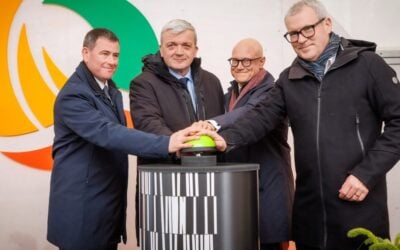Only Samsung SDI avoided a hefty fine for its role in the collusion. Image: Source: Flickr/Glyn Lowe.
Four makers of lithium-ion batteries have been sanctioned by the European Commission for anti-competitive practises, with three incurring fines totalling €166 million (US$176 million) after colluding to “avoid aggressive competition”.
Three Japanese companies, Sanyo, Panasonic and Sony were all fined for their part in the cartel, which ran from 2004 to 2007. Samsung SDI avoided being fined some €57.75 million because the Korean battery maker alerted the EC to the collusion, submitting an immunity application.
Relating more to rechargeable batteries of the type found in consumer electronic goods such as laptops and mobile phones rather than EVs or stationary storage, the charges relate nonetheless to both cylindrical and prismatic cells, as found in some stationary storage products.
All four makers breached EU antitrust rules when they agreed on temporary price increases in reaction to a rise in the price of cobalt used in lithium-ion batteries and also exchanged commercially sensitive information with each other. This included price and demand forecasts. The manufacturers struck up bilateral or sometimes multilateral agreements in Asia for the most part as well as in Europe.
Try Premium for just $1
- Full premium access for the first month at only $1
- Converts to an annual rate after 30 days unless cancelled
- Cancel anytime during the trial period
Premium Benefits
- Expert industry analysis and interviews
- Digital access to PV Tech Power journal
- Exclusive event discounts
Or get the full Premium subscription right away
Or continue reading this article for free
The fines were reduced due to cooperation with the commission, with the percentage of reduction depending on the level of cooperation. Sony was fined €29.8 million, the amount reduced by 50% from what it could have been, Panasonic fined €38.89 million and Sanyo €97.15 million, with the latter twos’ fines reduced by just 20%. All three were also given a 10% reduction for acknowledging the existence of the cartel and their role in it.
“Millions of Europeans use laptops, mobile phones and power tools that run on rechargeable lithium-ion batteries,” EU commissioner Magrethe Vestager said.
“Today’s decision sanctions four rechargeable battery producers whose collusion affected the prices of a number of goods sold to European consumers. It also sends an important signal to companies: if European consumers are affected by a cartel, the Commission will investigate it even if the anticompetitive contacts took place outside Europe.”





